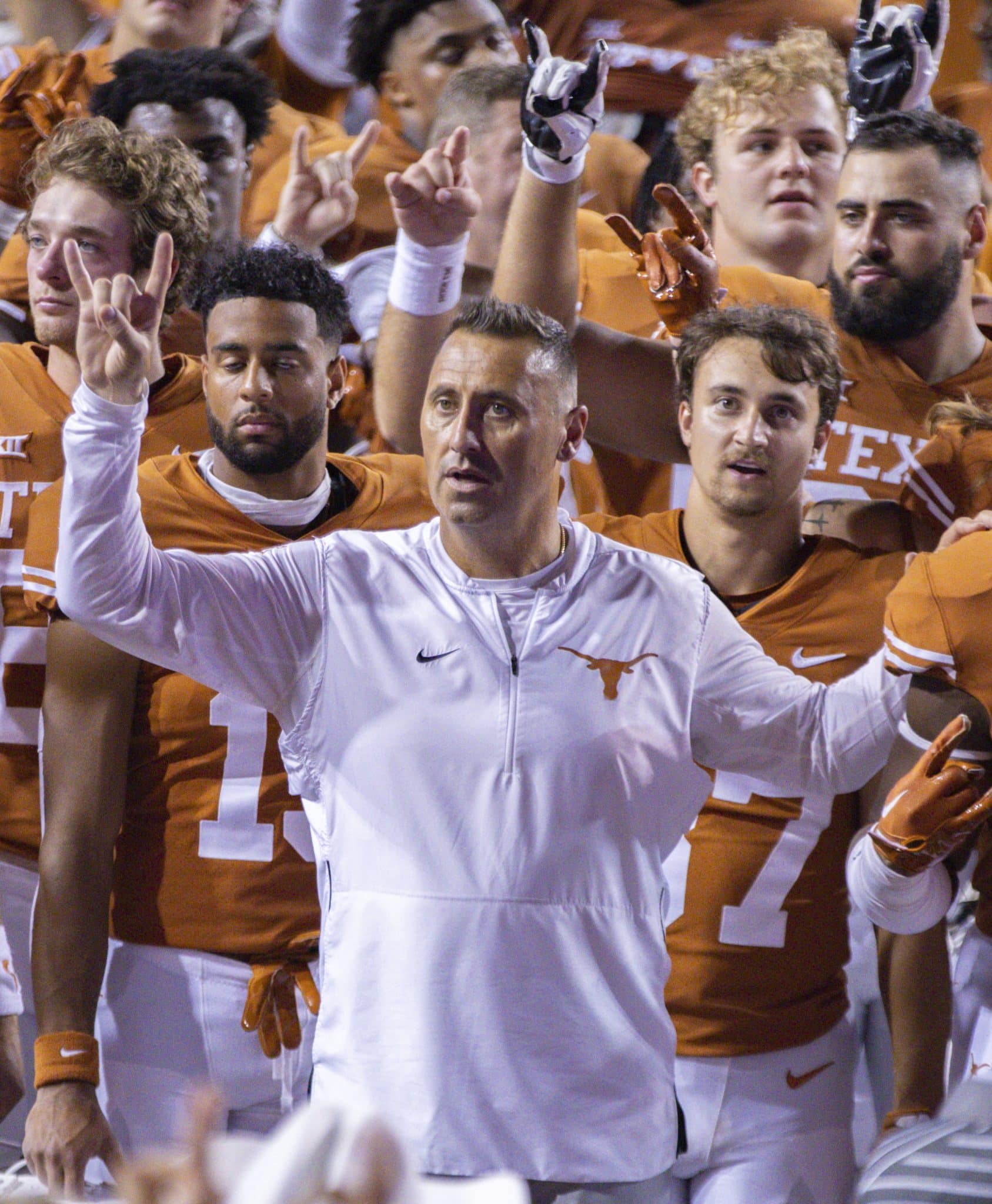
Hayes: Playoff history is harsh to newcomers. The challenge for Texas is to learn from it
By Matt Hayes
Published:
The last damn play. Somehow, someway, Texas found itself in position to pull off the greatest finish in Playoff history.
And then it ended.
A 1-on-1 fade throw knocked away in the end zone with zeroes on the clock, a final punch to the gut for a Texas team that did more than most Playoff newbies — and nearly pulled off the unthinkable in a 37-31 Sugar Bowl national semifinal loss to Washington.
This isn’t about Texas being back or not, everyone. This is about setting the table for what’s next.
A move to the SEC in 2024, and more important, the experience of losing in the Playoff — and the mission and motivation that comes with it.
“The way they fought and the resiliency they showed,” Texas coach Steve Sarkisian said after the game of his team, “that’s not what we were a few years ago. We’ve grown into it.”
Look, these things aren’t easy. You don’t just show up for the first time in the Playoff and win games, much less not get blown out.
Michigan State couldn’t score a point in its first Playoff game, and Florida State lost by 39. Washington scored 7 points in its first Playoff game, and Notre Dame scored 3.
Hell, Oklahoma still hasn’t figured it despite 4 tries. Michigan was 0-f0r-2 until breaking through Monday in overtime to beat Alabama.
All those mistakes and missed opportunities, that uncomfortable play that hadn’t showed up all season, and Texas still had a chance to steal history. Still had a chance — because of maybe the worst college injury/timeclock rule that somehow still hasn’t been changed — to advance to next week’s national championship game against Michigan.
And it just didn’t happen. It’s nobody’s fault, there are no fingers to point or blame to assign.
This is what happens when everything is on the line, and every possession and every play is absolute.
Welcome to the big show, Texas. It’s only Act 1.
Feed off the loss and the disappointment, and soak up the reality that when you needed your best, it wasn’t there for a majority of the game. It wasn’t what Texas showed week after week in the regular season.
Texas wasn’t the tough, active defense it was all season. Washington was.
Texas wasn’t playing smart offensively and frustrating defenses with unique formations and motion. Washington was.
Texas wasn’t rushing the quarterback, and covering tight in the secondary and forcing turnovers. Washington was.
Again, nothing about this process is easy, and simply getting to the 4-team tournament is difficult enough (and will get easier in 2024 with the 12-team format). But finding a way to move beyond what you’ve done so successfully for 3 months and reaching a rare level of performance when it matters most is the stuff of champions.
Just ask Michigan, which got blown out by Georgia in its first entry into the Playoff in 2021, then threw 2 pick-6s and blew Round 2 last season against TCU.
It took Michigan and coach Jim Harbaugh 3 bites at the apple to finally get it right — and only doing so after tying the Rose Bowl national semifinal in the last 90 seconds of regulation, and then winning it in overtime on a 4th-and-goal stop.
Those previous 2 Playoff games for Michigan that were full pre-snap penalties and turnovers and poor pass protection and the inability to make big plays when needed, looked a whole lot like what Texas tried to work through against Washington.
Texas, for all the good built under Sarkisian, for all the physical and mental growth, clearly isn’t ready for the big stage. Yet.
It doesn’t mean the Longhorns can’t or won’t get there. Georgia wasn’t ready when it blew a 10-point lead against Alabama, and 2nd-and-26 happened in the national championship game.
Four years later, Georgia began a run for the ages. How does it happen, you ask?
It’s transformational change, and it begins and ends by building on the lines of scrimmage and finding the right quarterback. The lines of scrimmage were good enough for Texas to win the Big 12 and advance to the Playoff.
They weren’t in the loss to Washington. They couldn’t keep the Washington pass rush from affecting the quarterback, and they couldn’t consistently run the ball.
More damaging, they couldn’t do enough to affect Washington quarterback Michael Penix Jr., whose remarkable performance hadn’t been seen in a Playoff semifinal since 2019, when LSU QB Joe Burrow threw 6 first half touchdown passes in a semifinal rout of Oklahoma.
Texas couldn’t do enough when it closed the game to 34-28 with 7 minutes to play — when Washington drove 65 yards in 10 plays and used nearly 5 minutes to hit what seemed like a game-clinching 27-yard field goal.
Then they did enough to cut the lead to 6 points with a field goal, and then a wild series of events gave Texas the ball with 45 seconds remaining and a prayer of a chance.
You’re not there just yet, Texas.
But it’s only Act 1.
Matt Hayes is a national college football writer for Saturday Down South. You can hear him daily from 12-3 p.m. on 1010XL in Jacksonville. Follow on Twitter @MattHayesCFB







